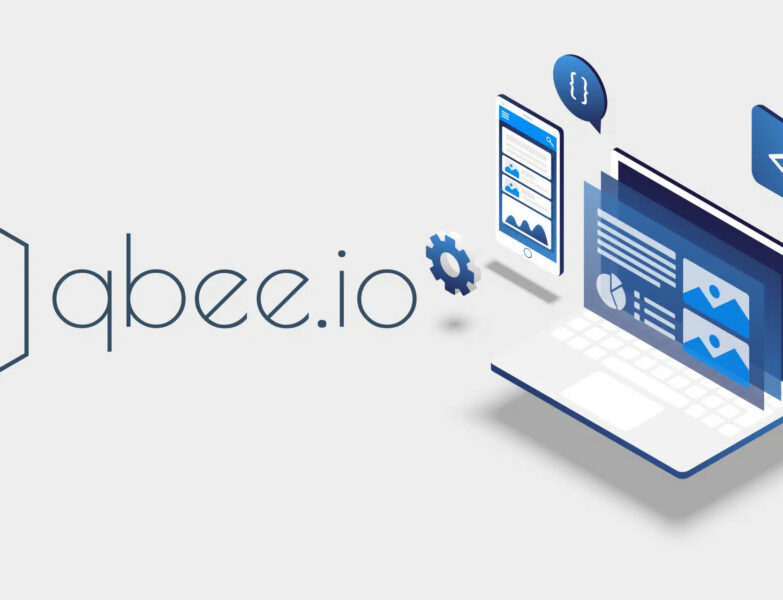Imagine a world where managing a fleet of devices is as simple as managing your social media accounts. Sounds too good to be true? Well, with Raspberry Pi fleet management, it's not just a dream anymore. This tiny yet powerful device has taken the tech world by storm, offering businesses and tech enthusiasts an affordable and scalable solution for managing large fleets of devices.
Raspberry Pi fleet management is revolutionizing the way we handle IoT networks, remote device monitoring, and automation. Whether you're running a small startup or a large enterprise, this technology offers unmatched flexibility and control. So, why are so many people talking about it? Let's dive in and find out!
In this article, we'll explore the ins and outs of Raspberry Pi fleet management, including its benefits, challenges, and real-world applications. By the end, you'll have all the info you need to decide if this tech is right for your business. Let's get started!
Read also:Strahinja Jokic Height Weight Unveiling The Stats Of Serbias Rising Basketball Star
Table of Contents
- Introduction to Raspberry Pi Fleet Management
- Understanding Raspberry Pi Basics
- What is Fleet Management?
- How Raspberry Pi Transforms Fleet Management
- Key Benefits of Using Raspberry Pi for Fleet Management
- Challenges in Implementing Raspberry Pi Fleet Management
- Essential Tools for Raspberry Pi Fleet Management
- Real-World Applications of Raspberry Pi Fleet Management
- Cost Considerations for Raspberry Pi Fleet Management
- The Future of Raspberry Pi Fleet Management
- Conclusion: Is Raspberry Pi Fleet Management Right for You?
Introduction to Raspberry Pi Fleet Management
Raspberry Pi fleet management is like having a Swiss Army knife for your tech needs. It's compact, versatile, and packed with features that make managing a fleet of devices a breeze. The Raspberry Pi itself is a credit-card-sized computer that can be customized for various applications, from home automation to large-scale industrial projects.
Managing a fleet of devices can be a daunting task, especially when you're dealing with hundreds or even thousands of devices. Traditional fleet management systems often come with hefty price tags and limited scalability. That's where Raspberry Pi steps in, offering a cost-effective and flexible alternative.
With Raspberry Pi fleet management, you can monitor, control, and update devices remotely, ensuring they're always running smoothly. This technology is a game-changer for businesses looking to streamline their operations and reduce costs without compromising on functionality.
Understanding Raspberry Pi Basics
What Makes Raspberry Pi Special?
Raspberry Pi is not just another piece of hardware. It's a community-driven project that has grown into a global phenomenon. Designed as an educational tool, it quickly found its way into the hands of developers, hobbyists, and businesses worldwide.
- **Affordability**: Raspberry Pi models start at just $35, making it accessible to anyone.
- **Customizability**: With a wide range of accessories and software options, you can tailor it to fit your specific needs.
- **Community Support**: A vibrant community of users and developers provides endless resources and support.
Whether you're building a smart home system or managing a fleet of IoT devices, Raspberry Pi offers the power and flexibility you need to succeed.
Read also:Alex Edelman Daughter The Rising Star In Her Own Right
What is Fleet Management?
Defining Fleet Management
Fleet management is the process of overseeing and maintaining a group of devices or vehicles. In the context of technology, it involves managing a network of IoT devices, ensuring they're secure, up-to-date, and functioning properly.
Effective fleet management is crucial for businesses that rely on technology to operate. It helps reduce downtime, improve efficiency, and ensure compliance with industry standards. With the rise of IoT, the need for robust fleet management solutions has never been greater.
Raspberry Pi fleet management takes this concept to the next level, offering a scalable and cost-effective solution for businesses of all sizes.
How Raspberry Pi Transforms Fleet Management
Unleashing the Power of Raspberry Pi
Raspberry Pi transforms fleet management by providing a centralized platform for monitoring and controlling devices. Its lightweight architecture and open-source software make it an ideal choice for managing large fleets of IoT devices.
Here are some ways Raspberry Pi enhances fleet management:
- **Remote Monitoring**: Keep an eye on your devices from anywhere in the world.
- **Automated Updates**: Ensure your devices are always running the latest software versions.
- **Security Features**: Protect your fleet from cyber threats with built-in security measures.
By leveraging the power of Raspberry Pi, businesses can streamline their operations and focus on what truly matters – delivering value to their customers.
Key Benefits of Using Raspberry Pi for Fleet Management
Why Choose Raspberry Pi?
Raspberry Pi fleet management offers numerous benefits that make it a top choice for businesses. Here are some of the key advantages:
- **Cost-Effective**: Raspberry Pi's low price point makes it an attractive option for businesses on a budget.
- **Scalable**: Whether you're managing ten devices or ten thousand, Raspberry Pi can handle it.
- **Open-Source**: Access to a vast library of open-source software and tools ensures you have everything you need to succeed.
- **Community Support**: The Raspberry Pi community is a treasure trove of knowledge and resources.
With these benefits in mind, it's no wonder so many businesses are turning to Raspberry Pi for their fleet management needs.
Challenges in Implementing Raspberry Pi Fleet Management
Facing the Challenges
While Raspberry Pi fleet management offers many advantages, it's not without its challenges. Here are some common obstacles businesses may face:
- **Technical Expertise**: Managing a fleet of devices requires a certain level of technical knowledge.
- **Hardware Limitations**: Raspberry Pi's hardware capabilities may not meet the needs of all applications.
- **Security Concerns**: Ensuring the security of your fleet is a top priority.
Despite these challenges, with the right planning and resources, businesses can overcome them and reap the rewards of Raspberry Pi fleet management.
Essential Tools for Raspberry Pi Fleet Management
Arming Yourself with the Right Tools
To get the most out of Raspberry Pi fleet management, you'll need the right tools. Here are some essential tools to consider:
- **Raspberry Pi OS**: The official operating system for Raspberry Pi devices.
- **Fleet Management Software**: Tools like Balena and Fleet Commander simplify fleet management tasks.
- **Networking Equipment**: Reliable networking gear ensures seamless communication between devices.
Investing in the right tools will set you up for success and help you achieve your fleet management goals.
Real-World Applications of Raspberry Pi Fleet Management
Putting Raspberry Pi to Work
Raspberry Pi fleet management is being used in a variety of real-world applications. From smart cities to industrial automation, the possibilities are endless. Here are some examples:
- **Smart Agriculture**: Farmers use Raspberry Pi to monitor and control irrigation systems, ensuring optimal crop growth.
- **Remote Monitoring**: Companies use Raspberry Pi to monitor equipment in remote locations, reducing the need for on-site visits.
- **Home Automation**: Smart home enthusiasts use Raspberry Pi to manage their IoT devices, creating a connected living space.
These applications demonstrate the versatility and power of Raspberry Pi fleet management in action.
Cost Considerations for Raspberry Pi Fleet Management
Weighing the Costs
When considering Raspberry Pi fleet management, it's important to weigh the costs involved. While the initial investment in hardware and software may seem low, there are other factors to consider:
- **Initial Setup Costs**: Purchasing Raspberry Pi devices and accessories can add up.
- **Ongoing Maintenance**: Regular updates and maintenance are necessary to keep your fleet running smoothly.
- **Training Costs**: Ensuring your team has the necessary skills to manage the fleet may require additional training.
By carefully evaluating these costs, businesses can make informed decisions about implementing Raspberry Pi fleet management.
The Future of Raspberry Pi Fleet Management
Looking Ahead
The future of Raspberry Pi fleet management looks bright. As technology continues to evolve, we can expect to see even more innovative applications and advancements. Here are some trends to watch for:
- **Increased Automation**: More businesses will adopt automated fleet management solutions.
- **Enhanced Security**: Security features will become more robust, protecting fleets from cyber threats.
- **Integration with AI**: Artificial intelligence will play a larger role in fleet management, offering predictive insights and optimization.
With these advancements on the horizon, the potential for Raspberry Pi fleet management is limitless.
Conclusion: Is Raspberry Pi Fleet Management Right for You?
Raspberry Pi fleet management offers a powerful and flexible solution for businesses looking to manage their IoT devices effectively. From its affordability and scalability to its community support and open-source tools, it's easy to see why so many are turning to this technology.
While there are challenges to consider, with the right planning and resources, businesses can overcome them and unlock the full potential of Raspberry Pi fleet management. So, are you ready to take the leap? Share your thoughts in the comments below and let us know how you plan to use Raspberry Pi in your fleet management strategy.
And don't forget to check out our other articles for more insights into the world of technology and innovation. Happy managing!



